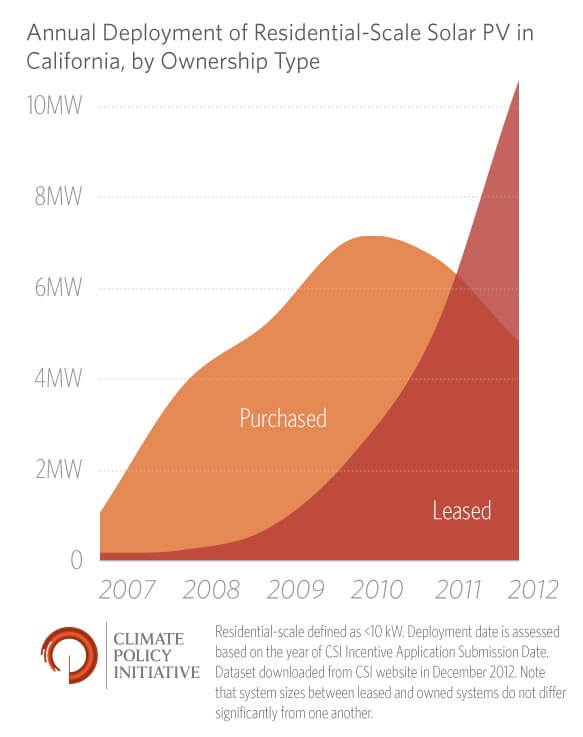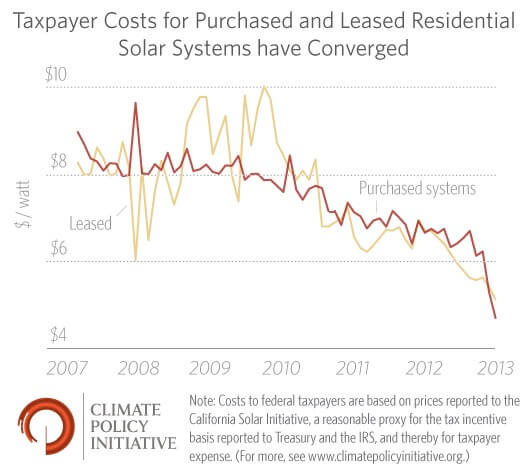New Study Shows Cost to Federal Taxpayers for Leased Systems has Declined, Indicates Ways to Further Lower Taxpayer and Consumer Costs
SAN FRANCISCO – A new study by Climate Policy Initiative (CPI) finds that most homeowners in California are no longer purchasing the solar panels on their rooftops, they are leasing them; over 75% of California’s new residential solar systems in 2012 were leased as compared to less than 10% in 2007. The study, titled “Improving Solar Policy: Lessons from the Solar Leasing Boom in California,” indicates that while incentives for leased systems initially cost federal taxpayers more than incentives for purchased systems, the cost gap has disappeared over the last two years.
In California, a number of companies offer leases for rooftop solar, which are attractive to consumers interested in reducing their electricity bills without having to finance and own a system. This opportunity has emerged as a result of steep cost reductions for solar panels, federal financial incentives, state policies, and business innovation.
Not all states allow solar leasing. Other states — including Georgia and South Carolina — are currently considering whether or not to allow it. The CPI study, which employs empirical methods to analyze costs to taxpayers and consumers, finds no evidence to support prohibitions on solar leasing based on California’s experience.
“Consumers are used to electricity as a service,” said Uday Varadarajan, senior analyst at Climate Policy Initiative and co-author of the recent study. “The boom in solar leasing shows that policy can support the expansion of renewable generation in a cost effective way while meeting the needs of consumers.”
CPI’s analysis also suggests that states friendly to solar leasing can take steps to lower costs to taxpayers and consumers. The report shows that a financial incentive for California rooftop solar that declined as deployment grew — a program administered through the California Solar Incentive — brought down prices for both leased and purchased systems. The price reduction was higher than can be explained by time trends, declines in solar module costs, and other factors, suggesting that the declining incentive put pressure on solar leasing and installation companies to make solar more affordable. Based on this data, it appears that declining incentives were successful in California and could be a model for other states.
For more information, visit www.ClimatePolicyInitiative.org
Climate Policy Initiative is a team of analysts and advisors that works to improve the most important energy and land use policies around the world, with a particular focus on finance. An independent organization supported in part by a grant from the Open Society Foundations, CPI has offices and programs in Brazil, China, Europe, India, Indonesia, and the United States.



